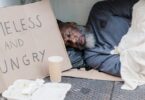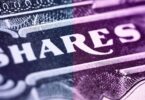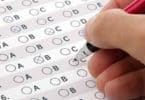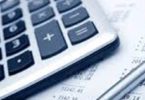Principles of Macroeconomics Quiz
Which of the following represents the major functions of the central bank?
(a) Note issuing agency
(b) Controller of credit
(c) Banker to the government
(d) All of the above
Macroeconomics as a separate branch came to be studied after the contributions of which economist?
(a) Adam Smith
(b) John Maynard Keynes
(c) F. Hayek
(d) Samuelson
The lowest point in the business cycle is referred to as the:
(a) Expansion
(b) Boom
(c) Trough
(d) Peak
Which of the following is an example of a qualitative credit control measure?
(a) Variable reserve ratio
(c) Discriminatory taxes
(b) Prescribing margin requirements
(d) Open market operations
When aggregate economic activity is increasing, the economy is said to be in:
(a) an expansion
(b) a contraction
(c) a peak
(d) a turning point
Related: Data interpretation test
A business cycle has:
(a) Three phases
(c) Five Phases
(b) Four phases
(d) Six phases
When aggregate economic activity is declining, the economy is said to be in:
(a) a contraction
(b) an expansion
(c) a trough
(d) a turning point
When did the Great Depression hit the United States?
(a) 2007
(b) 1929
(c) 1936
(d) 2001
Fiscal Policy includes:
(a) Expenditure policy
(b) Tax policy
(c) both a and b
(d) neither a nor b
What are the two main components of business cycle theories?
(a) A description of shocks and a model of how the economy responds to them
(b) A model of how people decide to spend and a description of the government’s role in the economy
(c) A model of how equilibrium is reached and a description of the government’s role in the economy
(d) A description of shocks and a description of the government’s role in the economy
Related: Excel test for interview
The most liquid form of all assets is
(a) Bonds
(b). Debentures
(c) Bill of exchange
(d) Currency notes
Economists use the term shocks to mean:
(a) unexpected government actions that affect the economy
(b) typically unpredictable forces that have major impacts on the economy
(c) sudden rises in oil prices
(d) the business cycle
Macroeconomics is a study of economics that deals with 4 major factors:
(a) households, firms, government, and demand-supply
(b) households, firms, government and external sector
(c) firms, government, free-market, and regulations
The objective of Monetary Policy is :
(a) to print notes of desired denominations
(b) to control cost and supply of money
(c) to provide loans to the government
Wars, new inventions, harvest failures, and changes in government policy are examples of:
(a) the business cycle
(b) economic models
(c) shocks.
(d) opportunity costs
Related: Maths quiz questions with answers
Which of the following is not an objective of monetary policy?
(a) Price stability
(b) Balance of Payments equilibrium
(c) Economic growth
(d) Reduction in export
Peaks and troughs of the business cycle are known collectively as:
(a) Volatility
(b) Turning points
(c) Equilibrium points
(d) Real business cycle events
What does the term free-market denote in terms of the economy?
(a) Minimal government intervention in trade and minimum regulations
(b) Maximum government intervention in trade and maximum regulations
(c) Means of production owned by the state
Fiscal Policy refers to policy towards:
(a) Public revenue
(b) public expenditure
(c) public debt
(d) all of the above
Bank rate refers to
(a) Discount rate
(b) Market rate
(c) Rediscount rate
Related: leadership quiz
In a closed economy, which of the following is not a macroeconomic objective?
(a) National income growth
(b) price level stability
(c) BOP stability
(d) employment
Which of the following is an anti-deflationary monetary policy?
(a) Purchase of government securities from commercial banks and from the public
(b) Sale of government securities from commercial banks and from the public
(c) Raising the cash reserve ratio
(d) All of the above
Macroeconomics does not study ___.
(a) the whole economy
(b) national income
(c) aggregate supply
(d) product pricing
Investment Multiplier explains the change in income as a result of a change in:
(a) Saving
(b) Wealth
(c) Employment
(d) Investment
A business cycle is composed of —– phases:
(a) 2 Phase
(b) 3 Phase
(c) 4 Phase
(d) No Phase
Related: Branding quiz questions
Which of the following is not a measure of selective credit control?
(a) Variable reserve ratio
(c) Regulation of consumer credit
(b) Regulation of margin requirements
(d) Rationing of credit
Which of the following is not a quantitative credit control measure?
(a) Bank rate
(b) Cash reserve ratio
(b) Regulation of margin requirements
(d) Open Market operation
__ is the subject matter of Macroeconomics.
(a) Growth theory
(b) Factory Pricing
(c) Market Structure
(d) Individual Incomes
Peak is the __ turning point of the business cycle.
(a) Upper turning point
(b) Lower turning point
(c) Middle turning point
Okun’s law related to :
(a) Unemployment and growth rate
(b) Inflation and growth rate
(b) wage loss
Related: Market research quizzes
Wage control is an instrument of __ policy
(a) Fiscal policy
(b) Monetary policy
(c) Incomes policy
Monetary Policy refers to the policy of the:
(a) Government
(c) Money lenders
(b) Central Bank
(d) Private Entrepreneurs
The term ‘macro’ has been derived from __
(a) The Greek word ‘makros’, which means large
(b) The English word ‘makros’, which means large
(c) The Greek word ‘makros’, which means small
(d) The French word ‘makros’, which means large
The trough of a business cycle occurs when it hits its lowest point.
(a) Inflation
(b) the money supply
(c) aggregate economic activity
(d) the unemployment rate
In a business cycle, depression is followed by:
(a). Boom
(b) Recovery
(c) Recession
Related: compound interest questions and answers
Both Foreign Direct Investment (FDI) and Foreign Institutional Investor (FII) are related to investment in a country. Which one of the following statements best represents an important difference between the two?
(a) FII helps bring better management skills and technology, while FDI only brings in capital.
(b) FII helps in increasing capital availability in general, while FDI only targets specific sectors.
(c) FDI flows only into the secondary market, while FII targets the primary market.
(d) FII is considered to be more stable than FDI
In macroeconomics, we study about __
(a) Theory of National Income & Employment
(b) Theory of Money Supply & Price Level
(c) Theory of International Trade & Eco-growth
(d) All of the above
Inflation
(a) Always reduces cost of living
(b) Always reduces standard of living
(c) Reduces the price of products
(d) Reduces purchasing power of money
Consider the following specific stages of demographic transition associated with economic development:
1. Low birthrate with low death rate
2. High birthrate with high death rate
3. High birthrate with low death rate
Select the correct order of the above stages using the codes given below:
(a) 1, 2, 3
(b) 2, 1, 3
(c) 2, 3, 1
(d) 3, 2, 1
Which of the following is/are the goals of macroeconomics __?
(a) To Achieve a Higher Level of GDP
(b) To Achieve a Higher Level of Employment
(c) Stability of Prices
(d) all the above
Related: Questions about Managerial Economics
Lower interest rates are likely to
(a) Decrease consumption
(b) Increase cost of borrowing
(c) Encourage saving
(d) Increase borrowing and spending
___economics can study the problem of inflation in the country.
(a) Micro
(b) Macro
(c) Static
(d) Dynamic
An increase in consumption at any given level of income will lead to
(a) Higher aggregate demand.
(b) An increase in exports
(c) A fall in taxation revenue
(d) A decrease in import spending
An increase in aggregate demand is more likely to lead to a pull of inflation.
(a) If the aggregate supply is completely elastic
(b) If the aggregate supply is completely inelastic
(c) If the aggregate supply is unitary elastic
(d) If aggregate supply is moderately elastic
Demand pull inflation may be caused by
(a) An increase in cost
(b) A decrease in interest rate
(c) A reduction in government spending
(d) An outward shift of aggregate supply
Related: quiz unemployment
Which of the following phrases describes the phase of the business cycle that occurs after a trough and before a peak?
(a) Lag
(b) Consolidation
(c) Expansion
(d) Contraction
Which of the following is an example of fiscal policy?
(a) Change in interest rate
(b) Change in tax rate
(c) Controlling money supply
(d) Manipulating bank rates
In a boom
(a) Unemployment is likely to fall
(b) Prices are likely to fall
(c) Demand is likely to fall
(d) Imports are likely to fall
Savings represent
(a) An injection to the circular flow of income
(b) A withdrawal into the circular flow
(c) Both an injection and a withdrawal






